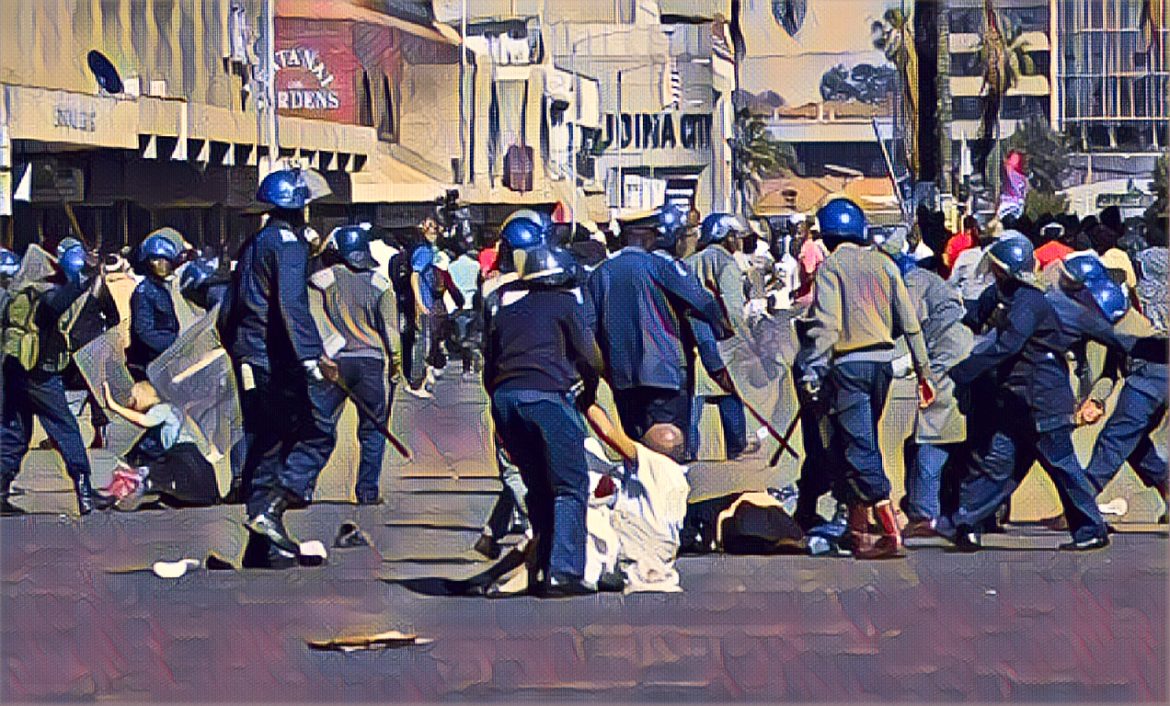KEY POINTS
- Zimbabwe detains 98 protesters opposing President Mnangagwa’s extended rule, with bail decisions deferred until April 10 amid allegations of planned violence
- Demonstrations spread to South Africa as war veterans abandon Mnangagwa, marking a seismic shift in the post-Mugabe political landscape
- Crackdown draws global censure while exposing ZANU-PF divisions, with economic grievances fueling unrest over proposed term extension to 2030
Zimbabwean authorities have remanded 98 anti-government protesters in custody following Sunday’s demonstrations against President Emmerson Mnangagwa’s administration, in a case that has drawn international attention to the country’s escalating political tensions.
The detained protesters, arrested at multiple locations in Harare, will remain imprisoned until April 10 while courts consider bail applications, as prosecutors allege they organised unlawful gatherings with intent to incite public violence.
MyZimbabwe reports that the protests were spearheaded by expelled ZANU-PF official Blessed “Bombshell” Geza, a former war veteran who has become a vocal critic of Mnangagwa’s proposed two-year term extension through 2030.
“The accused piled stones, bricks and tyres along Robert Mugabe road,” stated National Prosecuting Authority documents, alleging protesters chanted slogans including “ED must go nezvigananda zvake” (Mnangagwa must go with his cronies).
War veterans lead demonstrations as political tensions escalate
Parallel demonstrations erupted in South Africa, where Zimbabwean expatriates marched to both the Union Buildings and Harare’s embassy in Pretoria. “Mnangagwa must go with his cabinet—we are suffering,” one protester told DW Africa, while organizer Silwangani Ncube urged the 82-year-old leader to “do the honorable thing” and resign. These sentiments contrast sharply with Zimbabwean Ambassador David Hamadziripi’s dismissal of unrest as “just social media” in an interview with SABC News.
Security forces deployed water cannons and tear gas to disperse crowds in Harare’s Rotten Row district, where activists rejected Mnangagwa’s “2030 agenda.” The heavy police presence—including cancelled officer leave days—reflects government concerns over growing dissent from former liberation fighters. Analysts note this marks a significant shift, as war veterans previously formed Mnangagwa’s power base during the 2017 coup that ousted Robert Mugabe.
Human rights organizations have condemned the mass arrests. “Detaining nearly 100 people for peaceful protest violates Zimbabwe’s constitutional guarantees of assembly,” said Amnesty International’s regional director. Meanwhile, ZANU-PF hardliners like businessman Wicknell Chivayo have publicly denounced Geza’s movement, exposing deepening fractures within the ruling party.
With bail rulings pending and Geza promising “a new direction” of resistance, the case has become a flashpoint in Zimbabwe’s political crisis. As the April 10 court date approaches, observers warn the government’s response could determine whether the country faces renewed international isolation or meaningful political reform.


